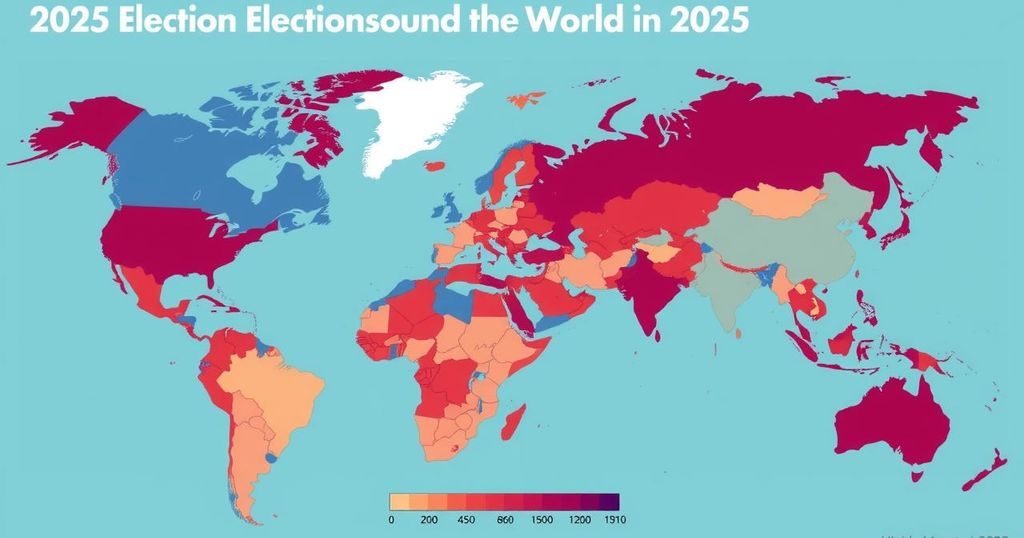World news
ALEH HAIDUKEVICH, ASIA, BELARUS, CANADA, EAST, EUROPE, EUROPEAN UNION, FOREIGN POLICY, HANNA KANAPATSKAYA, LITHUANIA, NORTH AMERICA, PHILIPPINES, POLITICS, PRESIDENTIAL ELECTION, PRESIDENTIAL ELECTIONS, REPUBLICAN PARTY OF LABOR AND JUSTICE, SCHOOL OF INTERDISCIPLINARY GLOBAL STUDIES, SIARHEI SYRANKOU, TA, TATSIANA KULAKEVICH, UNIVERSITY OF SOUTH, UNIVERSITY OF SOUTH FLORIDA
Fatima Alavi
0 Comments
Global Elections of 2025: Key Political Events to Monitor
In 2025, significant elections will take place in Belarus, Germany, the Philippines, Canada, and Chile, amid pressing global issues. Belarusian leader Alexander Lukashenko seeks another term in an unchallenged environment. Germany prepares for a snap election, with Chancellor Scholz facing economic difficulties. Philippine midterms will test President Marcos Jr.’s influence. Canada might have early elections due to Trudeau’s declining popularity, while Chile will hold its presidential election with incumbent Boric unable to serve again. Experts weigh in on these pivotal political events.
In 2025, several nations will hold significant elections that will shape their political landscapes against a backdrop of pressing global issues such as inflation, populism, and geopolitical conflicts. Notably, Belarus is poised to witness Alexander Lukashenko seeking his seventh term amidst a climate of repression and absence of meaningful opposition. Germany will face a snap election due to a coalition government collapse, with Chancellor Olaf Scholz in a precarious position as economic challenges loom. The Philippines will conduct midterm elections that will serve as a referendum on President Ferdinand Marcos Jr.’s tenure and the political future of his administration. Canada is grappling with the prospect of an early election, as Prime Minister Justin Trudeau faces mounting pressures and declining approval ratings. Lastly, Chile’s presidential election, expected in November, will be conducted under a complex political environment as incumbent Gabriel Boric is constitutionally barred from seeking re-election, creating opportunities for right-wing opposition candidates. Experts provide insights regarding the stakes involved in these electoral events.
The article highlights five significant elections slated for 2025, focusing on Belarus, Germany, the Philippines, Canada, and Chile. Each country’s political dynamics are shaped by unique historical contexts, recent developments, and global influences such as economic recessions and geopolitical tensions. The buildup to these elections is characterized by significant challenges for incumbents, including internal party dynamics, opposition movements, and public discontent primarily fueled by economic concerns like inflation. It reflects the broader trend of rising populism and the fluctuating political sentiments within these nations.
In conclusion, the elections occurring in 2025 across Belarus, Germany, the Philippines, Canada, and Chile represent critical junctures in their respective political histories. With each election reflecting local and international pressures, the outcomes are likely to have profound implications not only for the nations involved but also for global political dynamics. As these nations prepare to vote, the engagement of their electorates in contextually significant issues will be pivotal in shaping future leadership and policy directions.
Original Source: www.ndtv.com




Post Comment